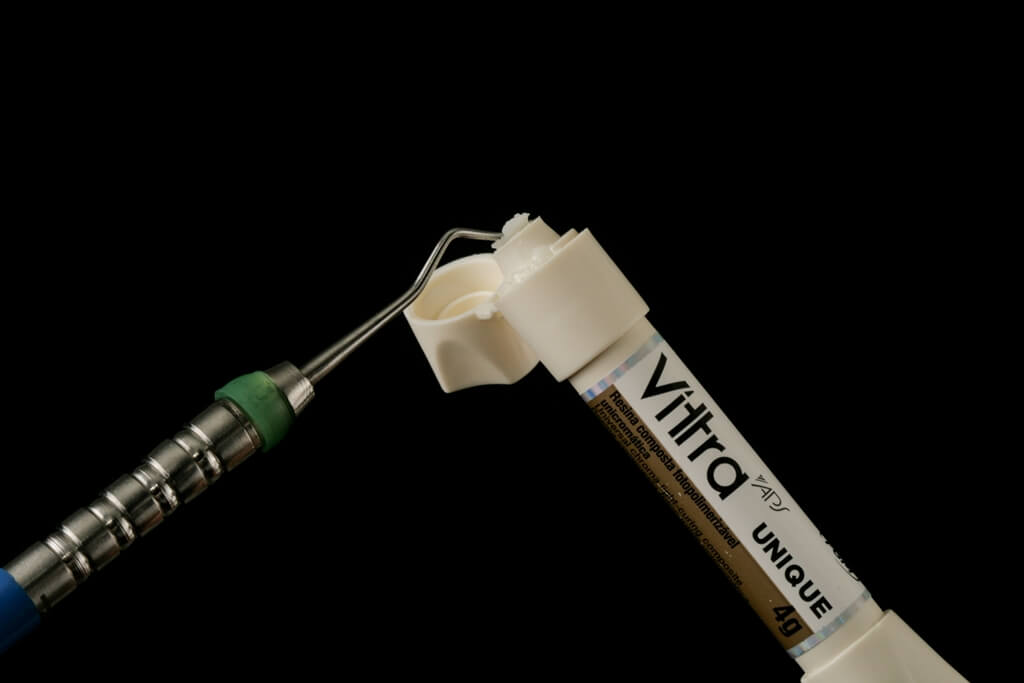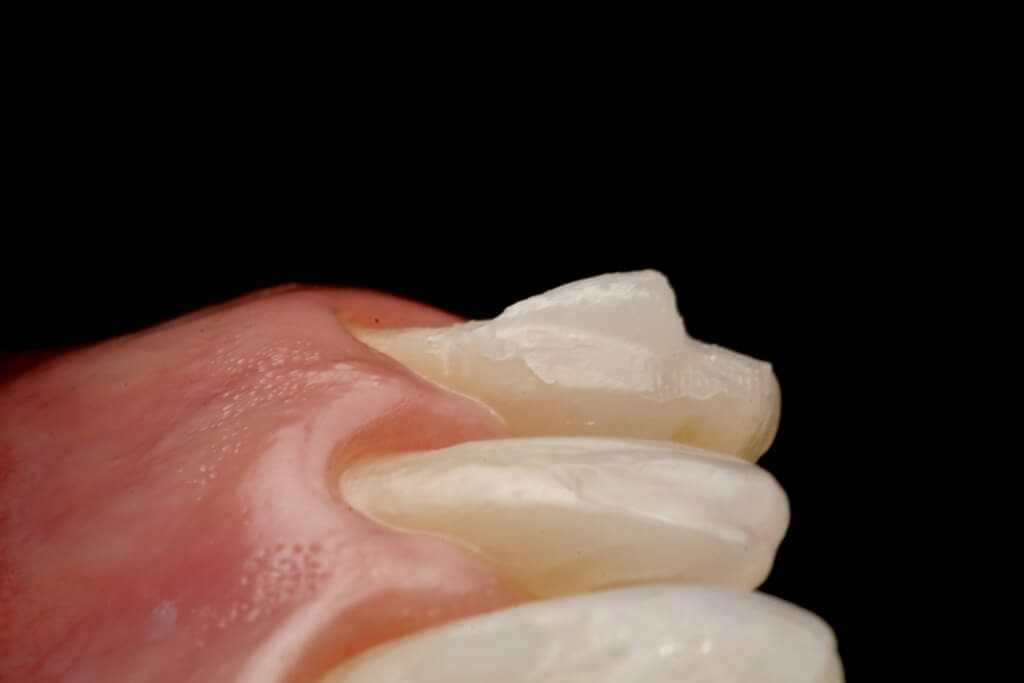Making attachments for aligners with the chameleon composite Vittra APS Unique
Authors: Manoela Almeida¹, Paulo Ruas² and Edgard Belladonna³
- Specialist in Orthodontics
- Specialist in Dental Prostheses
- Master in Implantology and Specialist in Dental Prostheses
Case Report
A female patient came to the private clinic reporting a dissatisfaction with the smile, especially due to the right upper lateral incisive tooth, which frequently appeared darker in photographs. She reported having worn fixed braces a few years before.
At the clinical exam, it was noted that element 12 did not show color alteration but because it was more palatine in relation to the adjacent teeth, it received less light, generating the sensation of being darker.
When proposing the orthodontic treatment for correction, the patient reported not being willing to do it but agreed when we suggested the use of invisible aligners for their being more comfortable and aesthetic. The patient showed some preoccupation with the aesthetic interference of the attachments (devices made in composite to help the dental movement). Due to that, we presented the Vittra APS Unique composite, which is capable of mimicking the color of the tooth in a very natural way, which made the patient much more tranquil and confident with the treatment.
Images

Figure 1 – Initial aspect

Figure 2 – Enamel etching with 37% phosphoric acid

Figure 3 – 15-second wait for the removal of the acid

Figure 4 – Isolation of the internal part of the template with glycerin

Figure 5 – Application of the colorless adhesive Ambar Universal APS (FGM) on the enamel

Figure 6 – Photoactivation of the adhesive

Figure 7 – Vittra APS Unique composite (FGM)

Figure 8 – Insertion of the Vittra APS Unique composite (FGM) in the grooves of the template

Figure 9 – Positioning of the template with the composite over the arch of the patient

Figure 10 – Immediate aspect after photoactivation and removal of the template

Figure 11 – Profile view

Figure 12 – Removal of the excess composite

Figure 13 – Final aspect
Final considerations
The Vittra APS Unique composite (FGM) has proved to be an excellent alternative for the making of orthodontic attachments. Besides very interesting aesthetics (it became practically imperceptible socially), it shows satisfactory mechanical resistance, a primordial fact since it undergoes concentrated forces from the aligners during the treatment which are intensified at their removal.

![IMG 07771 - Making attachments for aligners with the chameleon composite Vittra APS Unique IMG_0777[1]](https://srv01.fgmdentalgroup.com/wp-content/uploads/2022/11/IMG_07771.jpg)





















